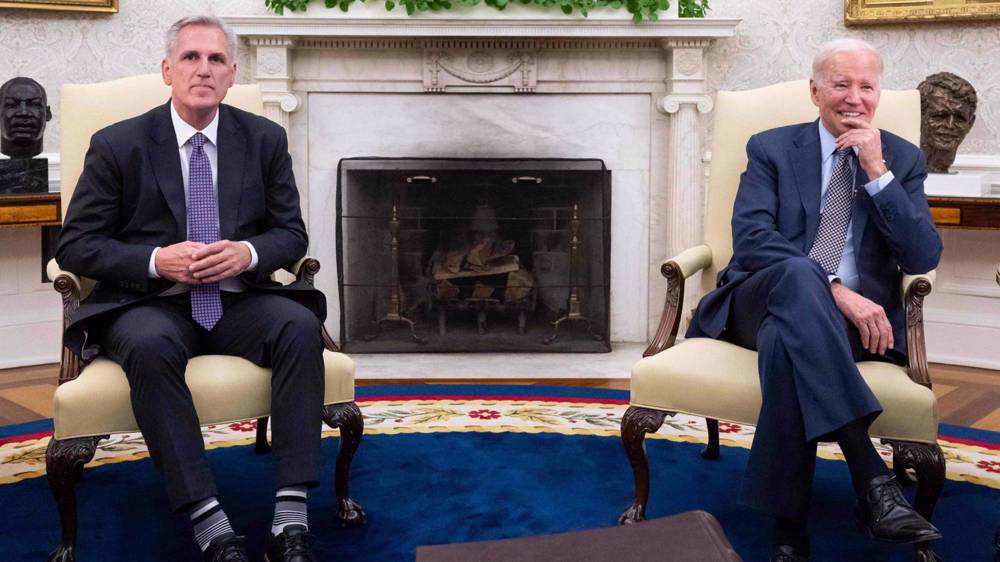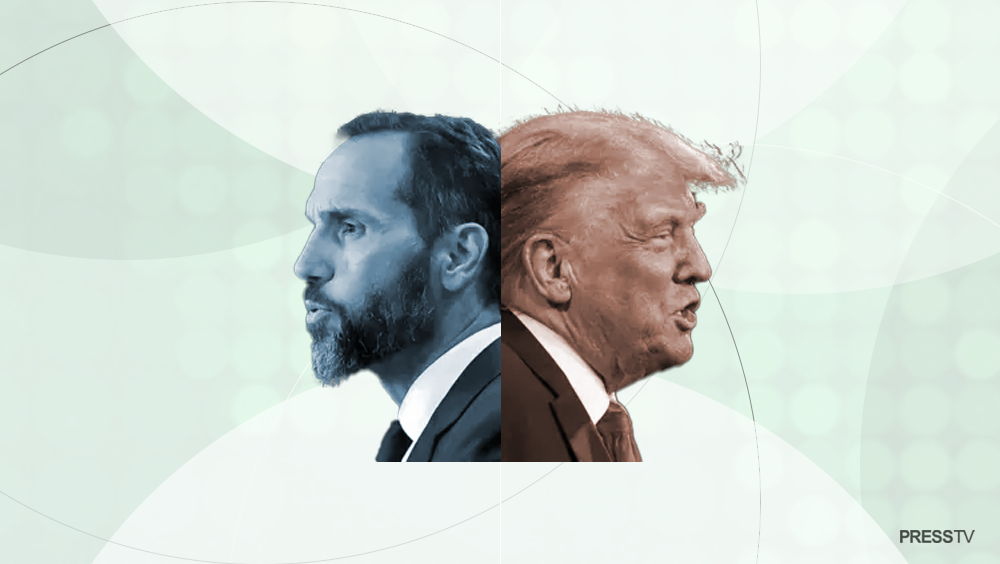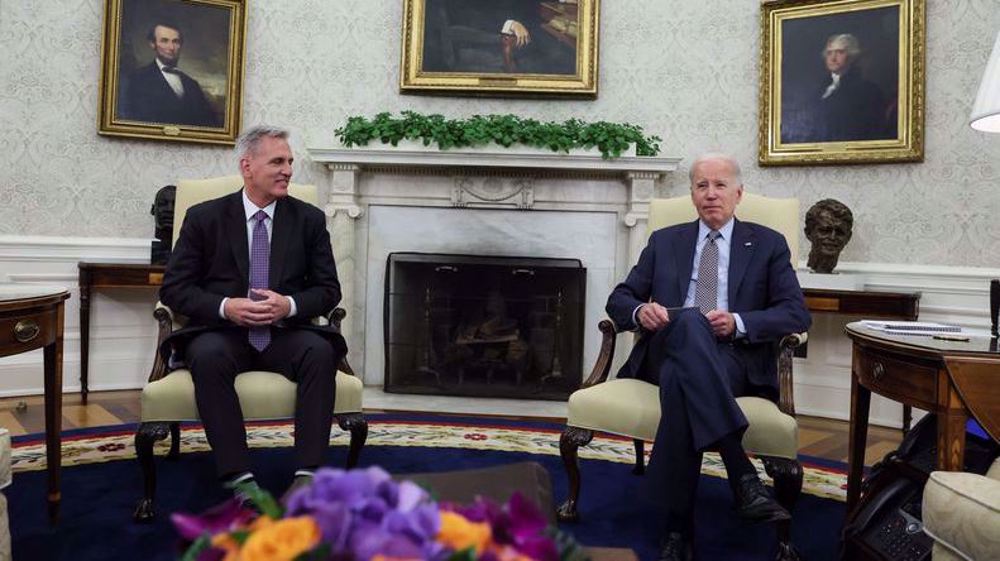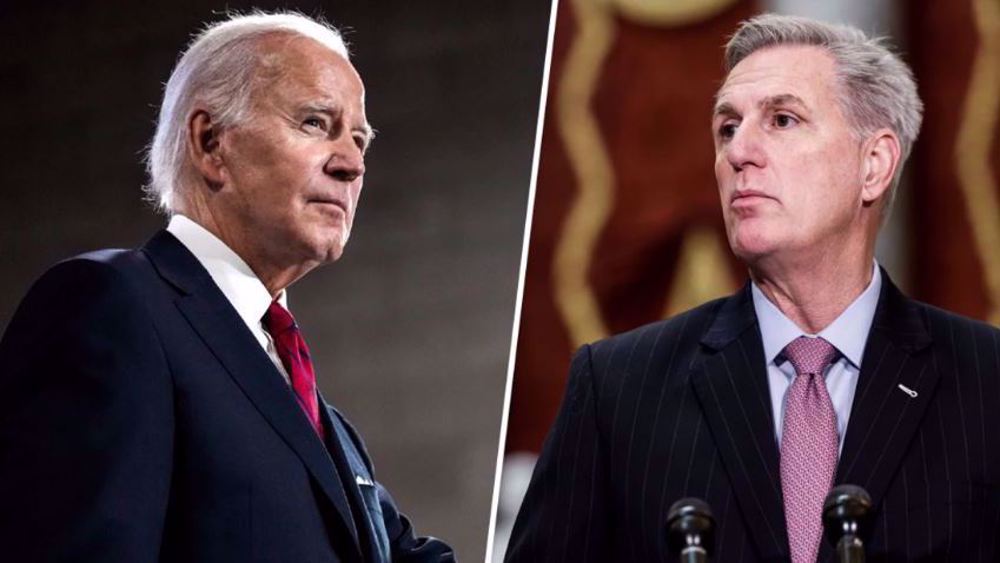Biden, McCarthy finalize much-criticized deal on debt ceiling
US President Joe Biden has finalized a much-criticized deal with Republican Kevin McCarthy, the Speaker of the House of Representatives, on debt ceiling.
Biden described the deal as "good news" for the American people, in his comments at the White House after a call with McCarthy to put the final touches to the deal on Sunday.
The deal suspends the $31.4 trillion debt ceiling until January 2025, so that the government can borrow more to pay bills already incurred.
"It takes the threat of catastrophic default off the table, protects our hard-earned and historic economic recovery," Biden told reporters at the White House.
The two sides agreed in principle to the agreement on Saturday evening after weeks of negotiations as the US Treasury said it would run short of money to cover all of its debt obligations by June 5.
The agreement still needs approval from Congress, which plans to consider it on Wednesday, to avoid a damaging default that could cause a recession with soaring unemployment and spark an international financial crisis.
"I strongly urge both chambers to pass that agreement," Biden said.
While the deal has been slammed by hardline Republicans and progressive Democrats, McCarthy earlier on Sunday predicted he would earn the support of a majority of his fellow Republicans, and House Democratic leader Hakeem Jeffries also expected Democratic support.
"This is a good strong bill that a majority of Republicans will vote for," McCarthy told reporters in the US Capitol, adding "You're going to have Republicans and Democrats be able to move this to the president."
The 99-page bill also includes caps on spending in the 2024 and 2025 budgets and extra work requirements for food aid programs for poor Americans, drawing condemnation from progressive economists and advocates who said it would slash assistance programs and protect the wealthy.
Slashing aid programs; protecting the wealthy
Critics say the deal could leave more people hungry, sick, and unable to afford housing, all while protecting the wealthy who avoid paying taxes.
Lindsay Owens, executive director of the Groundwork Collaborative, said in a statement on Saturday night, “After inflation eats its share, flat funding will result in fewer households accessing rental assistance, fewer kids in Head Start, and fewer services for seniors."
“The deal represents the worst of conservative budget ideology; it cuts investments in workers and families, adds onerous and wasteful new hurdles for families in need of support, and protects the wealthiest Americans and biggest corporations from paying their fair share in taxes.”
That came as the deal rescinds funding to crack down on tax fraud.
Amy Hanauer, executive director of the Institute on Taxation and Economic Policy, said the deal fails to fix "the real structural problems that led to the current debt crisis in the first place."
“The deal avoids the elephant in the room: it includes no new revenues even though tax cuts of the past few decades were a primary driver of deficit growth.”
Last week, a US-based author-academic and former United Nations official blamed the United States debt crisis on its "addiction to war".
He said the way to rein in the debt crisis is to "stop America's wars of choice and slash its military outlays" and replace them with real diplomacy.
How Los Angeles’ pistachio tycoons facilitated and profited from city’s wildfires
Iraqi PM: Iran was in Syria to fight terrorism; presence requested by Damascus
Hamas: Israel's massacre in Jenin camp won’t break resistance
60 bodies recovered from abandoned South African gold mine: Police
Biden administration ‘quietly’ circumnavigating own ban on TikTok: Report
Iran Navy takes delivery of first advanced ‘signals-intelligence’ destroyer
Italian TV exposes Israeli manipulation of EU institutions
UK anti-corruption minister Siddiq resigns over links to Bangladesh ‘embezzlement probe’













 This makes it easy to access the Press TV website
This makes it easy to access the Press TV website